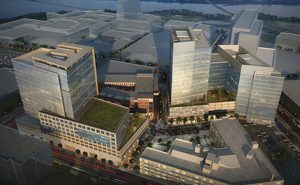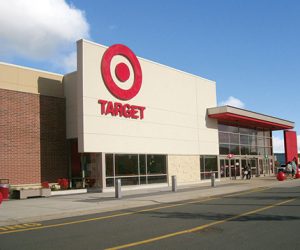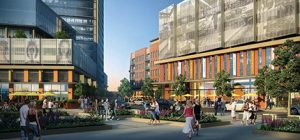 Richard Birdoff, RD Management
Richard Birdoff, RD ManagementThe New England real estate market is distinct compared to other regions throughout the U.S. It’s a high-demand market with a higher density than other locations in the greater region. The entitlement process coupled with the relatively small amount of available and developable land makes for a higher barrier of entry into the marketplace.
In the Boston metro area, tech and biomedical sectors are driving the bulk of employee demand. The Cambridge market is particularly sought after and is putting pressure on the real estate community because of the scarcity of available space. As you move outwards from the Boston metro area, the market remains tight and is difficult to enter. These sectors continue to prove to be growth-oriented. General Electric Co., for example, announced earlier this year that it was relocating its headquarters from Fairfield, Conn. to Boston’s waterfront. The move will bring approximately 800 jobs to the city.
On the retail front, there are a number of trends happening throughout the nation impacting the New England market. The general downsizing of retailers’ footprints – going from 30,000 s/f to 15,000 s/f, for example – is one. Retailers are feeling like they can sell as much product out of a smaller footprint, especially with increased Internet sales to help supplement.
 1 million s/f project - Somerville, MA
1 million s/f project - Somerville, MAWe’re also observing a movement towards mixed-use facilities, where instead of just traditional retail, you’ll have a “live, work, play” environment. Historically, some retailers had been reluctant to allow non-retail uses to be a part of their centers. That philosophy is now changing, not only for developers, but also for retailers. You’ll see residential uses becoming incorporated into what would be a traditional retail property. Hospitality and entertainment, whether that be in the form of cinemas and/or health clubs, are also sharing the same development tract.
As you get closer to urban areas, you’ll see that’s where this trend is really booming. Expensive, less developable land means developers and operators are revitalizing shopping centers and building tremendous new value by building up, rather than out. Public transportation accessibility also has a huge impact on the desirability of these centers, as consumers can now have a one-stop-shop for all of their needs – from shopping, to medical offices and logistics centers, to fitness studios and dining. Mixed-use means customers will stay longer, a habit that drives retail sales and overall rent growth.
 Meadow Brook Center - Lowell, MA
Meadow Brook Center - Lowell, MAOne and a half miles north of Boston, RD Management has a project in Somerville, Mass. that will become a first-class, 1 million-s/f office and lab space with retail amenities on the ground floor. We are still in the planning stages, but it is clear our focus is on mixed-use. Adding to its convenience are four MBTA bus stops on-site and a recently added orange line Assembly T stop just steps away. The office component sits adjacent to Partners Healthcare’s new corporate campus and Federal Realty’s Assembly Row, its newest mixed-use neighborhood, with additional dining and retail tenants that make the encompassing area a destination.
When RD Management sources properties, we look for value-add opportunities. We like to take sites that are less stabilized, and transform them by bringing new tenancies and different uses to increase the value of the property. However, different owners and developers have differing philosophies. Conversely, some operators want stabilized centers with high occupancy right off of the bat.
 1 million s/f project - Somerville, MA
1 million s/f project - Somerville, MARD is very active in the New England market. We repositioned what used to be the Billerica Mall into the Shops at Billerica. The redevelopment, encompassing over $11 million in improvements, included bringing a diverse tenant mix to the well-trafficked center and amplifying its presence with cosmetic facade enhancements. We also transformed Meadow Brook Center in Lowell, Mass., that we purchased from Target. When we acquired that property in 2011, it was 50% vacant. Today, it’s at 100% occupancy with such tenants as Marshall’s, The Children’s Place, GameStop, and Lincoln Technical Institute, among others.
 Shops at Billerica - Billerica, MA
Shops at Billerica - Billerica, MAWe’re breaking ground on some ground-up development in the Boston metro area on a few different projects. One such development is a 146,770 s/f retail center called Milford Crossing that we’re repurposing down in Milford, Mass. It’s a former Kmart and it’s a predominantly vacant center, but in the short order, it will become a vibrant destination. We’ve completed site plan approvals and are in the final negotiations for multiple tenant leases.
Despite the tight market, there are a number of opportunities sprouting up throughout New England. While strategies may change depending on proximity to bustling urban areas and an operator’s particular business model, staying in-tune to today’s trends in retail and mixed-use remain core to the success of new projects.
Richard Birdoff is principal and president of RD Management, New York, N.Y.








